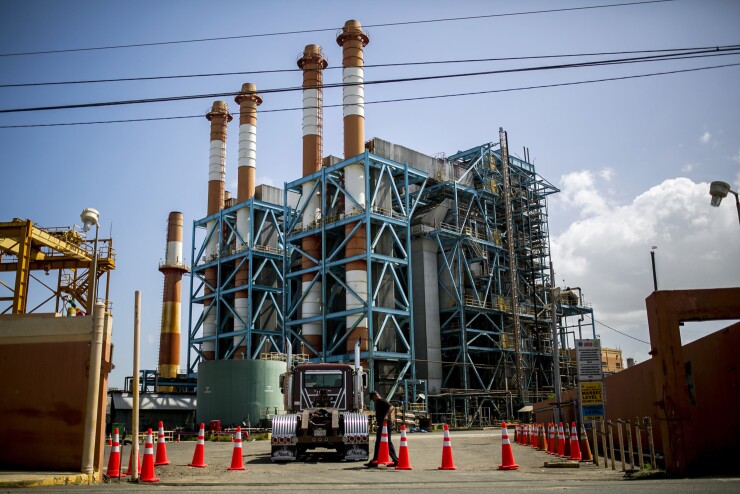U.S. District Judge Laura Taylor Swain rejected a request by bond parties for her to certify interlocutory appeals of her decisions in the Puerto Rico Electric Power Authority bankruptcy.
In a Wednesday hearing, Swain said she did not see a reason to reconsider
Swain said because of the needs of the Puerto Rico community, it was important for the bankruptcy to advance and not be delayed by appeals.

An interlocutory appeal is when a legal proceeding party appeals one ruling to a higher court before the final ruling is delivered. The bond parties could file interlocutory appeals without certification in the U.S. Court of Appeals for the First Circuit but appeals courts rarely hear them without certification.
Bondholders are asking for a lift in the stay on litigation in the bankruptcy at this point, which, for example, would allow bondholders to sue in a local court for a receiver. Swain said it seemed unwise to do so but would rule on the request later.
Swain also said she would soon rule on the Puerto Rico Oversight Board's
She said she was inclined to schedule a plan of adjustment hearing for November or later. She said the board should submit a third proposed plan of adjustment to the court on July 14.
Oversight Board attorney Martin Bienenstock said the board is inclined against having PREPA parties vote again when a third plan of adjustment is released. He said he didn't think there would be much in the way of reconsideration among the consenting classes. However, he said, if need be, there is time for a revote.
Assured Guaranty Attorney William Natbony said a revote after the new plan is released will be legally required. A court is legally barred from assuming acceptance of a plan when there's been an adverse change to any accepting class and Natbony said, according to the board's summary of plan changes, there will be some of these.
Earlier in the morning an attorney for PREPA's main union, known as UTIER, Zoé Negrón Comas, explained why Swain should approve UTIER's motion to stay
Negrón Comas pointed to Puerto Rico's Act 17-2019 that says, "No electric power service company … may control 50% or more power generation assets' capacity." She said that would bar Genera's takeover of electrical generation.
While not a party to the contract for Genera, she said UTIER had legal standing because its existence was at stake. If Genera goes ahead with taking over the generation it would "destroy" the union by removing nearly all its membership.
She also said the privatization of generation would endanger the union's pension system.
Board Attorney Adam Farbiarz said UTIER is contending its membership would drop to 200 from 800 if the deal goes through. They would be left with only those operating the island's hydroelectric plants as members. Farbiarz said this would be a reduction in membership but not a destruction of the union.
The union waited to the last minute, June 16, to file its suit against the Genera deal, Farbiarz said.
Negrón Comas responded that despite the Genera contract's requirement that the company meet with frequently with the union, it has avoided doing so. The union was hoping to meet with Genera and only turned to filing the adversary proceeding in U.S. District Court as a last resort, she said.
Swain said she would quickly release a decision on UTIER's motion for an injunction.





